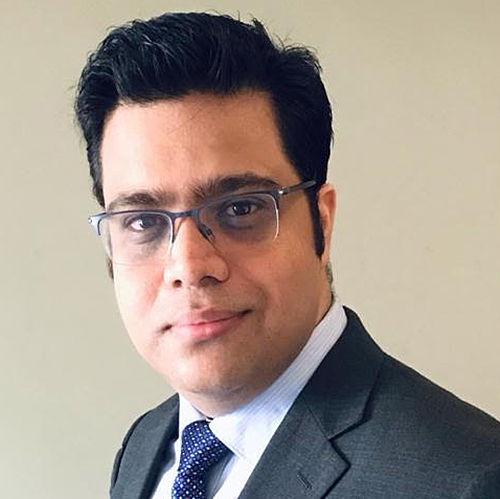Malaysia’s Bursa Carbon Exchange (BCX), the first government-backed voluntary carbon exchange, was launched in December 2022, with its first auction held in March 2023.
Managed by Bursa Malaysia, the BCX offers two types of carbon credits: nature-based and technology-based, with 150,000 Verra-registered credits auctioned in its inaugural event. The BCX also marked a global milestone as the world’s first Shariah-compliant carbon exchange within the growing international carbon market.
Despite early challenges, the BCX has made significant progress, facilitating continuous trading and off-market transactions attracting key players like Petronas, Maybank and Tenaga Nasional.
With the Malaysian government committed to reducing carbon intensity by 45% by 2030 and achieving carbon neutrality by 2050, the BCX has the potential to become a crucial part of the Southeast Asian nation’s broader climate strategy.
In a recent interview with The Asset (TA), the CEO of Bursa Malaysia, Muhamad Umar Swift (MUS) discusses the evolution of the nascent exchange, its progress to date and the potential of cross-border trading.
TA: Basically, how do companies benefit from participating in the BCX?
MUS: As a precursor and supporting mechanism to the future anticipated compliance carbon market in Malaysia, the BCX, our voluntary carbon market (VCM), offers companies the opportunity to start putting a price on carbon, by offsetting their unabatable greenhouse gas emissions through the purchase of environmental assets, such as voluntary carbon credits and renewable energy certificates (RECs) from a reputable platform.
This allows companies to demonstrate their commitment and leadership to sustainability, enhancing their corporate reputation while attracting environmentally conscious investors and customers.
TA: Some Malaysian banks were successful bidders in the recent Kuamut Rainforest Conservation Project auction. Are you expecting all Malaysian banks to take advantage of this opportunity to offset their carbon emissions?
MUS: While we are encouraged by the participation of some Malaysian banks in the recent Kuamut Rainforest Conservation Project auction, we understand that each bank has its own sustainability strategy. However, we do anticipate that more Malaysian banks will recognize the value of offsetting their carbon emissions through the purchase of such credits from both nature-based solution (NbS) and technology-based solution (TbS) projects, with the growing importance and attention on environmental responsibility.
Banks can leverage environmental assets, such as carbon credits and RECs, which we offer, as a part of their decarbonization toolbox for reducing the impact of their emissions. Understanding how these mechanisms work allows banks to take leadership in the space, potentially even acting as brokers for their clients and extending these offerings to them.
Some international banks have established trading desks dedicated to the buying and selling of environmental assets. By leveraging their expertise in the financial markets, local banks can explore the potential of a new revenue stream, but also help to create a more efficient and liquid market, facilitating the broader adoption of carbon offsetting practices.
In fact, banks can even look at originating their own projects and inventory of green assets. We believe some local banks are already exploring this option for insetting – focusing on reducing emissions and enhancing sustainability within their own supply chain – or for the sale of the environmental assets as a project developer themselves.
TA: What steps are being taken to achieve international recognition for the BCX? And is international exposure important?
MUS: To achieve international recognition, the BCX is actively aligning with global standards and best practices when it comes to our VCM. We are the world’s first Shariah-compliant, multi-environmental product exchange operation that facilitates the trading of RECs and carbon credits via standardized contracts.
We are also the first trading platform in Malaysia, and one of only six globally, to be conferred accreditation from the I-TRACK Foundation [International Tracking Standard Foundation]. Additionally, we have submitted our application to Bank Negara Malaysia to allow for trading in US dollars, which will enhance our international appeal in future.
The BCX is also a member of the International Emissions Trading Association and the United Nations Sustainable Stock Exchanges initiative, where Bursa Malaysia co-chaired the Carbon Markets Advisory Group that resulted in the development of a carbon market guidance for exchanges on how exchanges can maximize the benefits of carbon markets.
In preparation for Malaysia’s chairmanship of Asean [Association of Southeast Asian Nations] in 2025, we have also been actively contributing to the Working Group on Carbon Markets of the Asean-Business Advisory Council Malaysia to initiate two key projects: the establishment of the Malaysian Carbon Market Association and the Asean Common Carbon Framework.
Apart from that, we continuously engage with international stakeholders through the participation and the hosting of global forums to showcase our capabilities. For instance, we recently successfully organized our second Malaysia Carbon Market Forum on August 8, which was very well attended by global key opinion leaders.
International exposure is crucial for us as it helps attract a broader range of international participants to enhance market liquidity and position the BCX as a key player in the global VCM.
TA: Can the BCX offer anything unique compared with other Asian-based exchanges?
MUS: The BCX is wholly-owned and operated by Bursa Malaysia, one of the largest and oldest bourses in the Asean region. Bursa Malaysia’s strong equity market and recognition as a leader in the global commodities exchange space, particularly for palm oil, makes us a trusted marketplace.
It provides our stakeholders with assurance to trade in confidence, while giving us close reach to over 1,000 listed companies in Malaysia.
The BCX offers unique access to Malaysian-generated quality carbon credits and RECs via our platform. As the national exchange, we have the ability to form strategic partnerships with local and international organizations. We are also in a good position to facilitate public and private sector engagements that allow us to do more than just facilitate trades, but to build the ecosystem as well.
TA: It’s still early in the development, but can you see the BCX linking with other Asian-based carbon exchanges?
MUS: Collaboration with other Asian-based carbon exchanges is a key part of our long-term strategy, especially among Asean exchanges. Interoperability, at the most fundamental level, would be to first begin recognizing the national carbon standards of other Asean countries respective carbon market platforms, starting first from the voluntary and then to compliance carbon markets.
Hence, we are focused on establishing partnerships on a national level. This is being pursued through the proposal of the Asean Common Carbon Framework, which aims to expedite the development of a cohesive ecosystem in the region, via carbon market collaborations.
The proposed regional framework was discussed recently in a roundtable hosted by the Asean Business Advisory Council of Malaysia, held in conjunction with the Malaysia Carbon Market Forum 2024 in early August.
The framework intends to facilitate the development of national carbon standards by interested Asean member states, encouraging mutual recognition of methodologies and the sharing of resources in targeted strategic areas, such as capability building and interoperability within the Asean region. This regional development is also timely in view of Malaysia’s upcoming chairmanship of Asean in 2025 and aligns with Asean’s collective commitment to addressing climate change and supporting the vision of Asean’s Strategy for Carbon Neutrality.
Developing member countries’ national carbon standards is pivotal to unlocking domestic carbon project opportunities. The framework will foster greater linkages among voluntary and compliance carbon markets within Asean, promoting market liquidity and enhancing carbon pricing efficiency. We envisage this will accelerate the growth of carbon projects, attracting local and international credit buyers to the region.
Nonetheless, our vision for carbon extends beyond “linking with” other Asian-based carbon exchanges. We will continue to share our journey or collaborate, to develop best practices or commonalities between various carbon exchanges. For example, we were pleased to co-chair with the Egyptian exchange the advisory group formed by the United Nations Sustainable Stock Exchanges initiative, resulting in the publication of an action framework or guide for how exchanges can maximize opportunities in the carbon markets.
TA: Can you see a time when individual or high-net-worth investors have access to the BCX auctions or will it always be for institutional buyers only?
MUS: While the BCX currently focuses on corporate participation, we will explore ways to broaden access to other participants through various channels. We are currently setting up a working group to look into the potential for a carbon project financing platform. This could provide an opportunity for high-net-worth individuals to participate in the carbon markets differently, enabling a wider participation in impactful sustainability efforts.
TA: With your nation’s abundance of natural assets, is Malaysia well-placed as a source and pipeline of high-quality carbon credits to be offered on the BCX?
MUS: Malaysia is indeed well-placed to be a significant source of high-quality carbon credits, thanks to its rich natural assets. Malaysia had about 54.9% forest cover (and 17.85 million hectares of forests) in 2019, providing significant opportunities for the country to generate carbon credits from NbSs. By leveraging these resources, we can generate carbon credits that not only help offset emissions but also contribute to the conservation of our valuable ecosystems, while moving our national net-zero ambition forward. The recent launch of the Kuamut Rainforest Conservation Project served as a lighthouse for NbS projects.
Some of our NbS opportunities include, but are not limited, to projects such as reforestation, afforestation, avoided deforestation, avoided peat degradation and restoration. Additionally, NbS projects also encompass blue carbon projects, such as avoided seagrass and mangrove degradation and restoration projects, which allows us to leverage the climate change mitigation value of marine and coastal ecosystems as well to support their conservation, sustainable use and restoration.
Malaysia also has great opportunity to generate carbon credits from TbSs, such as methane capture for waste management and biogas, transportation and green mobility. In the area of agriculture, and within the palm oil sector alone, Malaysia has over 450 palm oil mills with over 150 million tonnes of waste that will enable us to harness biogas from palm oil mill effluent, and through other biocarbon opportunities, such as biochar and other agriculture, forestry and other land use projects.
In the future, there are also carbon capture, utilization and storage potentials given the sizable geological reservoirs to store carbon emissions. Malaysia’s carbon credits can be generated from carbon-intensive sectors that will help improve their business resilience as they leverage on the sales of carbon credits to recover their investment cost in decarbonizing projects while reducing emissions in their operations.
Currently in our pipeline, there are also several carbon projects in various early phases of feasibility study and preparation of project design documents. As the market matures, we hope to see more projects come to fruition, given our technical potential highlighted above, positioning Malaysia as a key player in the global carbon market.









